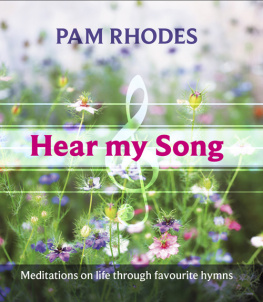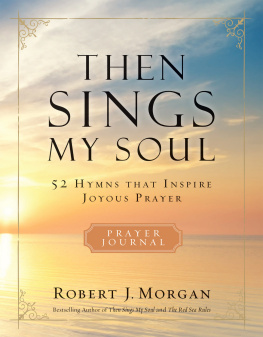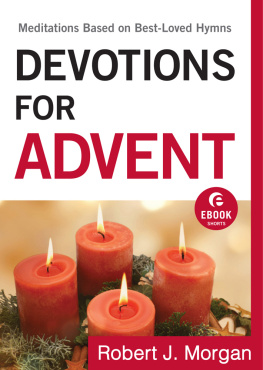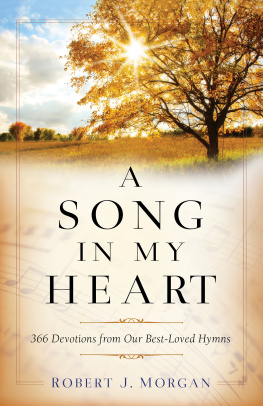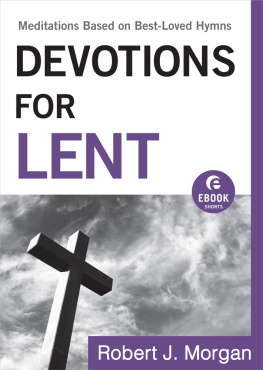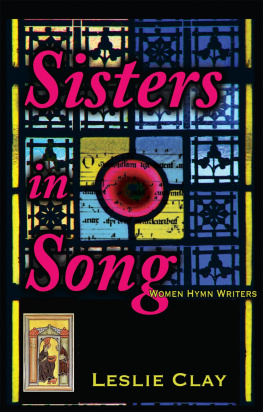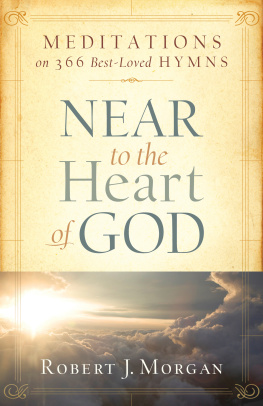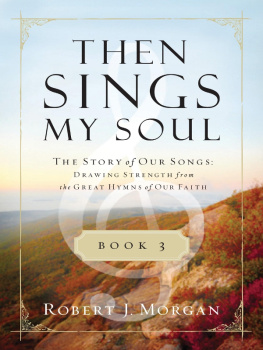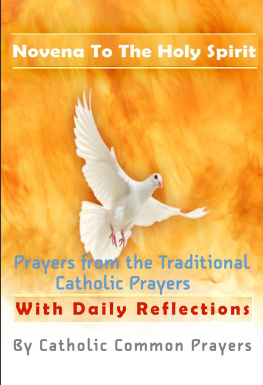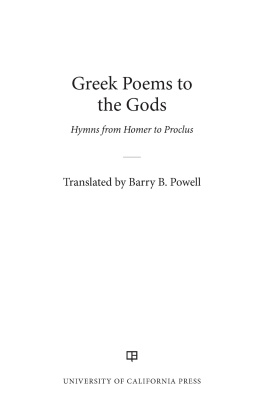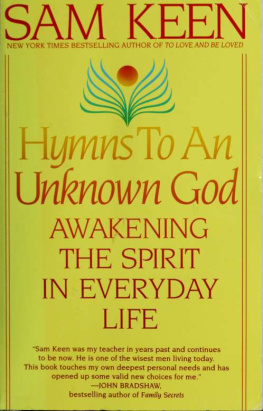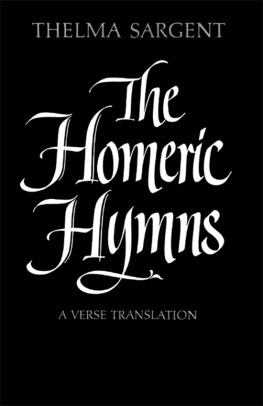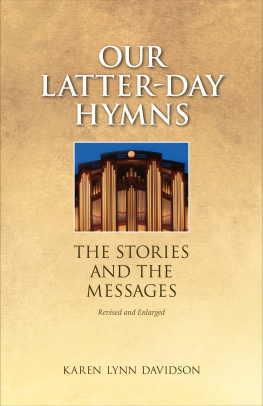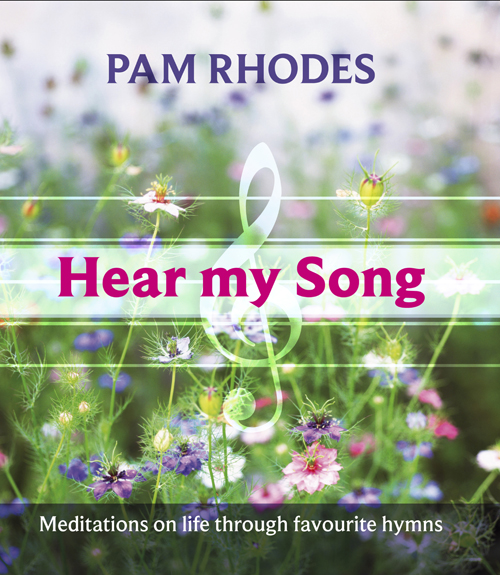

First published in Great Britain in 2010
Society for Promoting Christian Knowledge
36 Causton Street
London SW1P 4ST
Copyright Pam Rhodes 2010
Illustrations copyright Monica Capoferri 2010
All rights reserved. No part of this book may be reproduced or transmitted in any form or by any means, electronic or mechanical, including photocopying, recording, or by any information storage and retrieval system, without permission in writing from the publisher.
SPCK does not necessarily endorse the individual views contained in its publications.
Unless otherwise noted, Scripture quotations are taken from the HOLY BIBLE, NEW INTERNATIONAL VERSION. Copyright 1973, 1978, 1984 by International Bible Society. Used by permission of Hodder & Stoughton Publishers, a member of the Hachette UK Group. All rights reserved. NIV is a registered trademark of International Bible Society. UK trademark number 1448790.
British Library Cataloguing-in-Publication Data
A catalogue record for this book is available from the British Library
ISBN 9780281061938
E-ISBN 9780281065318
1 3 5 7 9 10 8 6 4 2
Designed and typeset by Kenneth Burnley, Wirral, Cheshire
eBook by Graphicraft Limited, Hong Kong
Contents
I love hymns. Its not just because Ive presented the BBC Television series Songs of Praise for more than twenty years and therefore probably know more hymns than most people have had hot dinners! The fact is Ive always loved hymns. I loved singing them in Sunday school and in assembly, and Ive loved singing them ever since.
It may be something to do with those unforgettable, stirring melodies once sung, never forgotten. Who could fail to be moved by Handels music for Thine Be the Glory, or Hubert Parrys Jerusalem? How could you not be touched by the haunting tune for Abide with Me or Be Thou My Vision? Without a doubt, the marriage of words and music can sometimes be so sublime, its impossible to think of one without the other.
But for me, its the words that really count. I suppose its because most hymn verses started off life as poems, often written at times of great inspiration, stress or emotion. It really doesnt matter if the writer was a psalmist putting pen to parchment three thousand years ago or a modern-day writer tapping away on a computer keyboard the human condition has remained constant. We all recognize the same feelings whether were longing for comfort, protection, guidance, or just worn down by world-weariness; whether our daily lives have become a struggle, or we cant sleep at night because we are troubled by the problems of what seems to be a heartless world around us. Whatever were going through, because were human, we share the same emotions and its those emotions that have been expressed in graphic, lyrical, inspirational words by poets and hymn writers down the ages.
When I was growing up, I learned some of the great poems of the English language parrot-fashion in class, and even now most of those lines are still imprinted in my mind. The same goes for hymns. Mostly they are in rhyming couplets, which makes them easy to remember, and in addition we easily recall the music to which the words fit, so we just have to hear that melody again for the words to come flooding back. Sometimes the wording might sound a little strange or even archaic, but the sentiment shines through to strike chords in our own lives.
More than that, the words of so many hymns obviously started life as prayers. Often they are directed straight to God in praise or supplication, and you can imagine that the writers were filled with a sense of prayer as they wrote. On many occasions, writers have said that the words almost wrote themselves, as if by divine gift. Certainly, the conciseness of meaning and the depth of emotion expressed in short lines of verse can make some words simply unforgettable. Youll have your own favourites. But for me, the verses in this book have real power to comfort and inspire. Take, for instance, these enduring words, written by Henry Lyte, which speak so evocatively of how helpless we feel at times of great worry:
Abide with me; fast falls the eventide;
the darkness deepens: Lord, with me abide!
when other helpers fail, and comforts flee,
help of the helpless, O abide with me.
And what encouragement can be found when we are in a dark tunnel of pain and uncertainty from the words George Matheson wrote when he was in the swirls of depression:
O love that wilt not let me go,
I rest my weary soul in thee;
I give thee back the life I owe,
that in thine ocean depths its flow
may richer, fuller be.
Because these favourites of mine are more than a century old, its tempting to say, They dont write them like that any more but they do! Modern-day writers such as Stuart Townend, Dave Bilborough, John Bell and Graham Kendrick are wonderful wordsmiths whose songs are an outpouring of both their humanity and Gods divinity, in just the same inspired way as the hymns of writers of years gone by.
I like to think of this book as a spiritual first-aid kit. Take a look at the chapter headings, and on days when they seem to express exactly how you feel, dip into the pages and see what speaks to you. Youll find so much that you need here challenge, comfort, hope, thanks and love. And maybe this book needs another chapter, the one you create yourself. What hymns have stayed with you over the years and why? Do they bring back heart-warming memories? Do they remind you of emotional times in the past, or periods of particular challenge or fulfilment? Do they give you courage to face difficulty or disappointment? Do they make you think about your responsibilities to Gods world and people? Do they give you a clearer picture of what God truly means to you? There are many questions voiced in the lines of these hymns, but so many more answers!
Cherish the hymns you love. Hold them dear. Keep them close to your heart. Draw strength from them and dont be afraid to let others hear your song!
Pam Rhodes

Theres a little hymn I remember from my school days that often comes to mind nowadays. Do you remember this?
Glad that I live am I;
that the sky is blue;
glad for the country lanes,
and the fall of dew.
After the sun the rain,
after the rain, the sun,
this is the way of life,
till the work be done.
(Lizette Woodworth Reese, 18561935)
Mostly, its just the first line that pops into my head at certain moments when I find myself feeling grateful just to be here, to have all I have and be what I am. I think of those times as Glad that I live am I! moments and I look back and count my blessings as I remember each and every one of them. I suppose thats because they are balanced against all the mundane, tiring, upsetting, frustrating or even downright difficult times that seem to fill the rest of each day. Is it just me, or does life generally seem more frantic, more troublesome, more worrying with each succeeding year? For others, of course, it may be quite the opposite that what worries them is having too much time on their hands as families move away and partnerships or work situations change, perhaps bringing loneliness and a lessening sense of worth. Thats why I think those Glad that I live am I! moments are important for all of us, especially as they often happen when you least expect them. For me, such moments come when Im walking down the lane near home, for instance, and notice first the buds, then the blossom, then the berries in the hedgerow as the seasons change; or when Im looking at the tiny, perfect fingers of a new grandchild; or getting my shoulders under hot water in a deep, sweet-smelling bath at the end of a long day; or in the company of good friends; or cooking a Sunday roast, then sitting round the table watching the family eat with enthusiasm; or glancing up towards someone I care about, only to find they are already looking at me with a loving smile There are so many moments, each mentioned in gratitude in my nightly prayers, then stored away in the warmest corner of my heart.
Next page
